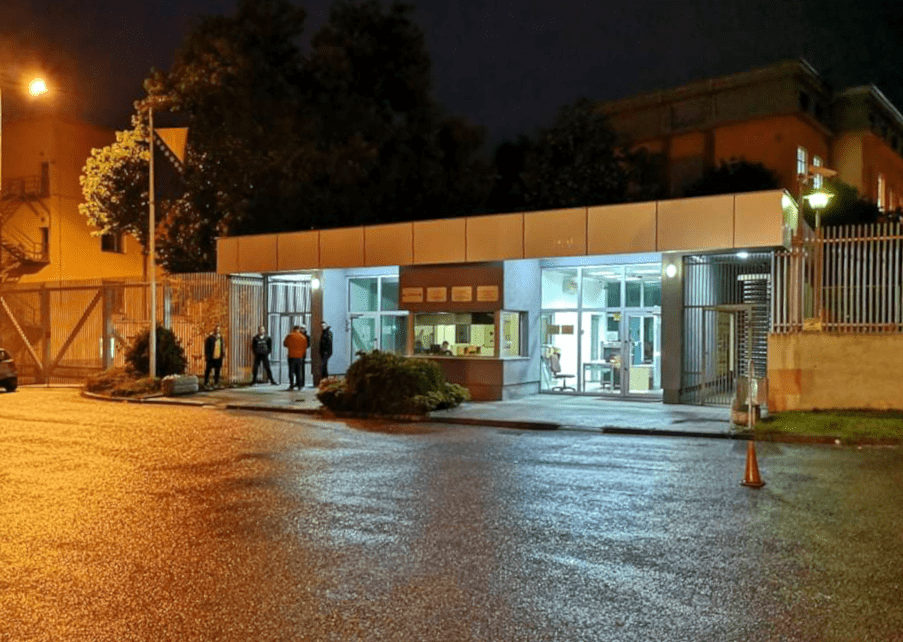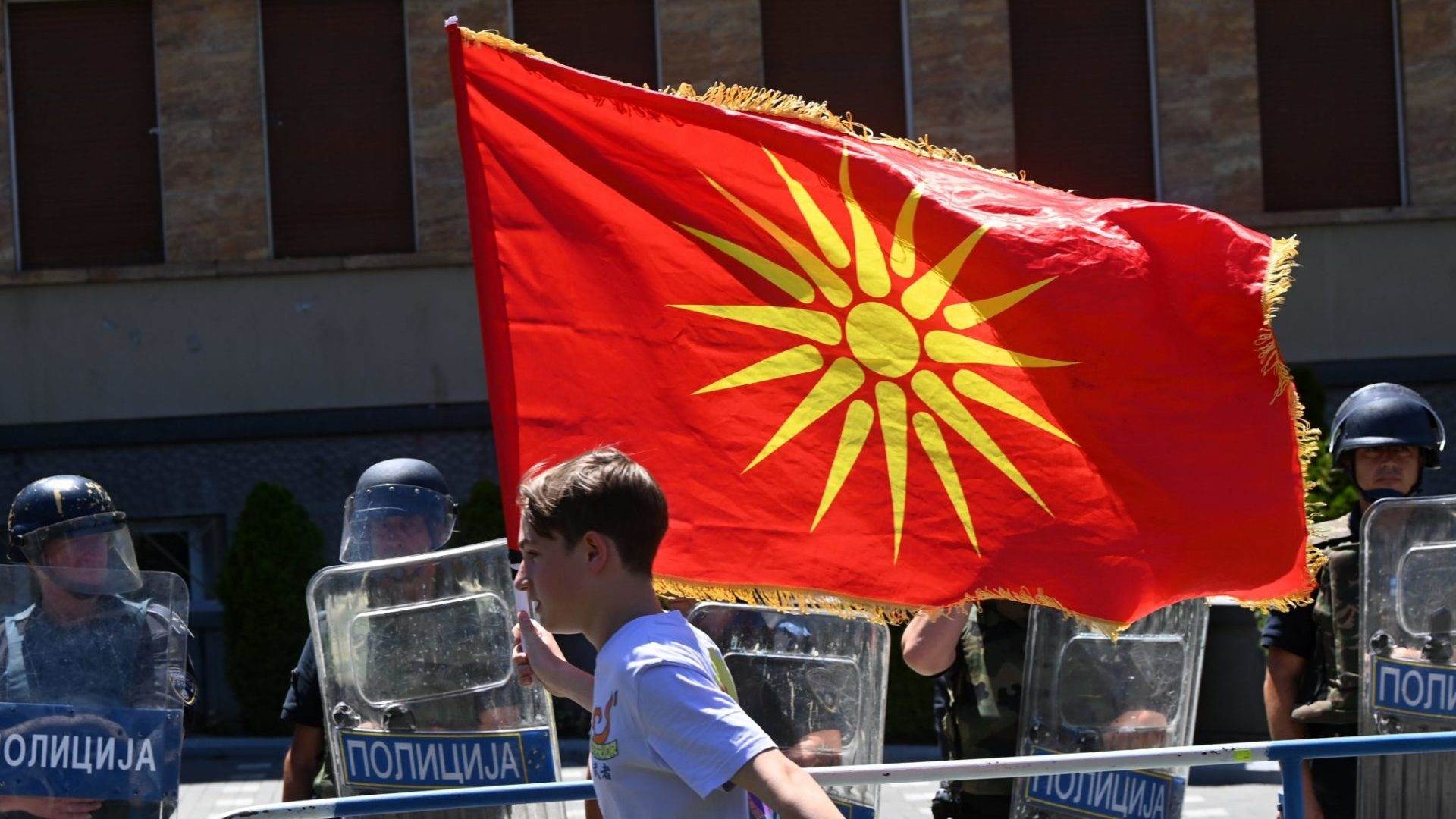This post is also available in: Bosnian
Bosnian officials and diplomats are being kept busy these days, fending off attacks on their country as a jihadist hub in the middle of Europe.
The Czech President was the latest to weigh on in this hot theme, as BIRN reported this week.
According to Milos Zeman, returning ISIS fighters are likely to hole up in Bosnia because it’s a more or less Muslim country and because there are so many hospitable villages flying the black flag of ISIS/Daesh.
“Bosnia can become such a base , firstly because of its national structure, and also judging by the black Daesh flags raised in a number of Bosnian cities and villages,” Zeman said in an interview with Blesk media outlet.
Zeman is not alone in this view. Tap words like “Bosnia”, “Islamist”, “Muslim” and “extremist” into a search engine and a veritable mountain of alarmist articles come up.
Meanwhile, closer to home, Croatian President Kolinda Grabar Kitarovic has made the danger of Islamism in Bosnia one of her pet themes, albeit using less crass language than Zeman.
Last December in Dubrovnik, she opined on how “thousands” of Islamist fighters had returned from the Middle East to Bosnia, a theme she reworked in March in Neum, where she warned that in Bosnia, Islamist “extremism is on the increase”.
The Croat leader’s views are music to the ears of some in Croatia, echoing the known obsession of her predecessor, Franjo Tudjman with the works of Samuel Huntington, and with the supposed civilizational differences between “Western” Croatia, “Eastern” Serbia and “Muslim” Bosnia – which in turn reprised a far older notion of Croatia as antemurale christianitatis – the rampart of Christendom – a title also claimed by Poland and Hungary, however.
Back in the 1500s in the times of Pope Leo X – he’s the one who apparently came up with the expression – that might have been true, but these days such talk is more inflammatory than accurate or useful.
Bosnian leaders, religious and secular, are justified in dismissing these supposed expressions of concern as a smear.
According to most intelligence chiefs, Bosnia is not even in the running for the title of “jihadist capital” of Europe.
The EU’s counter-terrorism coordinator, the Belgian Gilles De Kerchove, as cited in Friday’s UK Telegraph, told Spain’s El Mundo that the country with the most Islamist extremists in the whole of Europe – with at least 20,000 of them – is Britain.
He put the UK just ahead of France, which he thought had about 17,000. Belgium, for all its recent notoriety as an Islamist hub, had only about 2,000, he opined, while Spain – the target of the most recent terror attack – was home to about 5,000.
Of course, such figures must be taken with a pinch of salt. De Kerchove is unlikely to have direct knowledge of the scale of Islamist activity in the UK and will surely be relying on the UK’s own intelligence for such information.
And some countries have more of interest in upping the degree of threat they face than others, often for a variety of domestic reasons, such the need to justify tough domestic anti-terror legislation and surveillance powers.
Still, it is significant that Bosnia – and mainly Muslim Kosovo and Albania – do not figure in these kinds of league tables.
Moreover, empirical evidence – the record of actual attacks – points also to Bosnia’s irrelevance to the problem of Islamist violence in Europe.
For a country allegedly overrun with black flag-waving extremists, Bosnia has produced remarkable few terrorists.
To date, it has experienced two major terror attacks, one of which ended in no deaths, involving a crazed-looking man, Mevlid Jasarevic, shooting at the US embassy in 2011.
In the second, in 2015, Enes Omeragic shot dead two soldiers before killing himself.
That was worrying, but it hardly compares with the grim roll call of terror attacks in France, Britain, Belgium and Spain in recent years.
In the UK, the London terror attack of 2005 resulted in 56 deaths. That, however, pales in comparison to more recent events in France, where 130 died in Paris in November 2015 and another 86 in Nice in July 2016.
This August, Islamist terrorists claimed another 15 victims in Barcelona, Spain, in what was intended to be a much bigger attack, allegedly targeting the famous Sagrada Familia church.
The now-dead imam believed to have inspired this attack reportedly had links to the Madrid train bombers who killed 192 people back in 2004.
What is striking about most of these attacks is the international dimension to them. Repeatedly, we discover that the bombers or their masterminds flitted between London, Paris, Brussels Barcelona and other big cities in Western Europe.
Where does Sarajevo fit into to this European network of terrorists? Nowhere, apparently. Strangely, Europe’s “jihadist hub” does not seem to feature on the agenda, radar or travel map of the actual jihadists.
You might think that Zeman, Grabar Kitarovic – and the many others worried by the dangers of violent Islamism in Europe – would have spotted this and drawn attention to it, the next time they discuss the subject. But will they?
Marcus Tanner is an editor of Balkan Insight and the author of “Albania’s Mountain Queen, Edith Durham and the Balkans” .
The opinions expressed in the Comment section are those of the authors only and do not necessarily reflect the views of BIRN.




